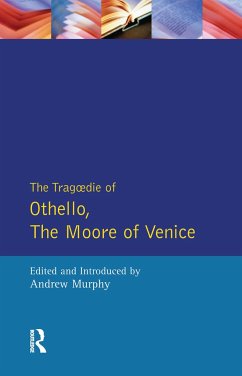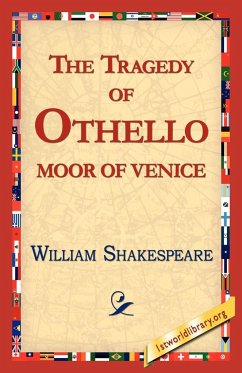
Othello, the Moor of Venice
Versandkostenfrei!
Versandfertig in 6-10 Tagen
8,49 €
inkl. MwSt.

PAYBACK Punkte
4 °P sammeln!
Set against the backdrop of Venice and Cyprus, William Shakespeare's "Othello, the Moor of Venice" is a profound exploration of themes such as jealousy, betrayal, and racial prejudice. The play masterfully intertwines rich character development with a complex narrative structure, employing Shakespeare's signature iambic pentameter and poetic devices. The play's tension escalates through the manipulation of Othello by the duplicitous Iago, leading to tragic consequences that reveal the darker facets of human nature and societal mores of the Elizabethan era, particularly regarding race and mascu...
Set against the backdrop of Venice and Cyprus, William Shakespeare's "Othello, the Moor of Venice" is a profound exploration of themes such as jealousy, betrayal, and racial prejudice. The play masterfully intertwines rich character development with a complex narrative structure, employing Shakespeare's signature iambic pentameter and poetic devices. The play's tension escalates through the manipulation of Othello by the duplicitous Iago, leading to tragic consequences that reveal the darker facets of human nature and societal mores of the Elizabethan era, particularly regarding race and masculinity. William Shakespeare, an iconic figure of English literature, was deeply engaged with the social and political issues of his time, which is reflected in his works. "Othello" was likely influenced by both the growing awareness of racial identities in England and Shakespeare's own diverse circle of acquaintances. The play interrogates societal attitudes toward the 'Other' and confronts audiences with the devastating effects of manipulation and self-doubt. This timeless tragedy is highly recommended for readers who seek to understand the complexities of human emotion and social structures. Shakespeare's insightful commentary on jealousy and morality forces us to confront our own biases and vulnerabilities, making it an essential read for those interested in drama, psychology, and social dynamics.












